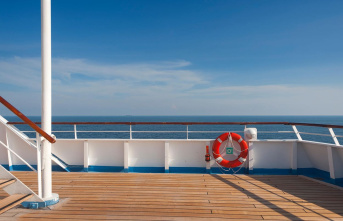While Europe is experiencing an energy crisis compared by some to the oil shock of 1973, Quebec, which refines 100% of the diesel it consumes, still has to live with the repercussions of rising oil prices. .
"An organization like OPEC can decide to put more or less oil on the market, but a François Legault has no impact, for example", summarizes Johanne Whitmore, principal researcher at the Chair of management of the sector of the energy at HEC Montreal.
Quebec has two refineries, Suncor's in Montreal and Valero's in Lévis, which produce more diesel than is consumed here.
"That's capitalism"
But the market price is international and the refineries sell at this price.
"They don't give discounts to Quebec buyers," recalls Pierre-Olivier Pineau, professor and holder of the Chair in Energy Sector Management at HEC Montreal.
As Europe wants to replace about a third of its oil supply that comes from Russia, the pressure is on.
"Refineries on the east coast of the United States are very tempted to export their diesel to Europe at a high price," concedes Louis-Philippe Gariépy, senior director, public and government affairs at Énergie Valero, which owns the Lévis refinery.
People "don't like to hear that we pay a lot for it here, even if we produce it locally," he says, but "it's the same."
"That's capitalism," adds Ms. Whitmore.
More exports
She points out that oil companies and refineries are "private" companies that will always do what benefits them in terms of profitability.
"If it's advantageous, the company will do it within the framework of what is legally permitted," says the researcher.
The scarcity of diesel on the American east coast therefore creates a scarcity in Quebec, which exports more than usual.
“We sell it either directly in Europe or on the east coast,” confirms Mr. Gariépy.
"They are able to fetch a better price and they do," says Johanne Whitmore
Last March, the French Minister of Economy, Bruno Le Maire, declared that the current energy crisis marked by soaring prices is "comparable in intensity, in brutality, to the oil shock of 1973".
This is somewhat nuanced by Jean-Thomas Bernard, who is a professor in the Department of Economics at the University of Ottawa.
"I don't anticipate an oil shock, because the oil producers don't have, like then, the intention to cut production," he said.
However, the price of a barrel of oil is not about to go down, according to the expert, and Quebecers will continue to pay for their gasoline and diesel at current prices, or even at higher prices.
1












